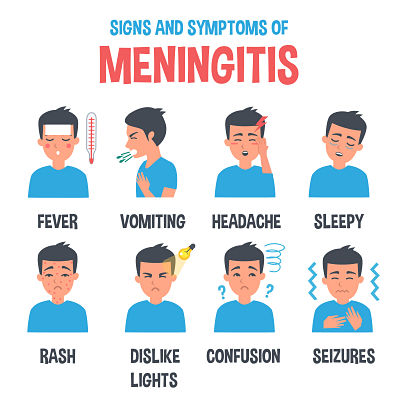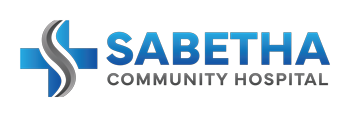
Signs and symptoms of meningitis: fever, vomiting, headache, sleepy, rash, dislike light, confusion, seizures
Meningococcal Disease: What Do You Need To Know?
WHAT IS MENINGOCOCCAL DISEASE?It is a very serious bacterial infection caused by the bacterium Neisseria meningitis. Meningitis is an inflammation of the meninges, which are membranes that enclose the brain and spinal cord. Meningococcal disease is the leading cause of bacterial meningitis in children ages 2 - 18 in the U.S.
Some of the symptoms of the meningococcal disease are:
high fever
headache
vomiting
stiff neck
rash
Ten to fifteen percent of those who contract the disease die despite treatment with antibiotics. Other things that can occur from the disease are permanent brain damage, hearing loss, kidney failure, loss of arms or legs, or chronic nervous system problems.
Although anyone can get meningococcal disease, it is most common in infants less than one year of age and people with certain medical conditions such as a lack of a spleen. Teenagers between 15 - 19 and college freshman who live in dormitories have a higher risk also. Fortunately, the disease in not as contagious as the common cold or the flu. The bacteria are spread by respiratory and throat secretions (from coughing, sneezing or kissing). The disease is not spread by casual contact or by breathing the air around a person who is sick.
There are two types for meningococcal vaccines available in the U.S. The meningococcal conjugate vaccine (MCV4) is the one preferred for those from age 2 to 55. The meningococcal polysaccharide vaccine (MPSV4) can be use if the MCV4 is not available and is preferred for people over 55 years of age. Both of the vaccines work well and protect approximately 90% of those who get the vaccine. These vaccines may be given at the same time as other vaccines which are given.
WHO should get vaccinated?
Children between ages 2 and 10
Adolescents and adults, ages 11 to 55. -- All adolescents should receive a booster dose at age 16
Adults over 55, who are at high risk of contracting the disease - this includes anyone who is traveling to, or living in a part of the world where meningococcal disease is common, anyone with any type of immune system disorder and people who have either a damaged spleen or no spleen.
WHO should not be vaccinated?
Anyone who has ever had a severe allergic reaction to a previous dose of either meningococcal vaccine or any vaccine component should not get vaccinated.
Anyone who is moderately or severely ill at the time the shot is scheduled. You should wait until you are fully recovered.
Anyone who has ever had Guillain-Barre Syndrome should discuss the vaccine with his/her provider.
HOW you can prevent meningococcal disease
The most effective way to prevent meningococcal disease is to keep up-to-date with recommended immunizations. Maintaining healthy habits, like getting plenty of rest and avoiding close contact with people who are sick, can also help.
FOR MORE INFORMATION on Meningococcal disease, contact your local provider or call Sabetha Family Practice at (785) 284-2141.
